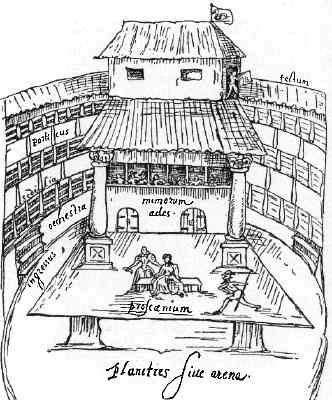I’ve been reading through the ~200 page introduction to a full collection of the works of Shakespeare that I picked up cheap at the used bookstore. It’s edited by a G.B. Harrison.
—
For the past three hundred years Shakespeare has been regarded as the greatest writer in the English tongue, and since it is unusual for one generation to worship the gods of its fathers, it follows that he has been admired for very different reasons, and that his plays possess an enduring vitality. This quality in art we call universality. (p.3)
“Unusual for one generation to worship the gods of its fathers” is true, in so many ways.
—
Shakespeare goes to great trouble to make the story [Romeo and Juliet] entirely respectable. The disaster which comes to them is not their fault or of their making. It comes because of the stupidity of their parents; and in Shakespeare’s plays most parents, especially fathers of daughters, and incredibly stupid. (p.6)
I wonder if our contemporary sitcom buffoon father owes some of his legacy to Shakespeare? If so, too bad.
—
To be honest, I am really only familiarizing myself with more of Shakespeare’s works because I want to read Girard’s commentary on them called A Theatre of Envy. It isn’t hard to see right away though why Girard and Shakespeare would get along nicely:
Shakespeare was one of the very few Englishmen who saw that behind the pomp [of monarchy] lay the intolerable burden:
Upon the King! Let us our lives, our souls,
Our debts, our careful wives,
Our children, and our sins lay on the King!
We must bear all. Oh, hard condition,
Twin-born with greatness, subject to the breath
Of every fool, whose sense no more can feel
But his own wringing!
(From Henry V)
Shakespeare really knew that being the king was a terrible and dangerous thing.
—
I loved this description of urban London in the 1600s. This sort of thing can still be found on Times Square.
“At one time, in one and the same rank, yea, foot by foot and elbow by elbow, shall you see walking, the knight, the gull [sucker], the gallant, the upstart, the gentleman, the clown, the captain, the apple squire [pimp], the lawyer, the usurer, the citizen, the bankerout [bankrupt], the scholar, the beggar, the doctor, the idiot, the ruffian, the cheater, the puritan, the cut-throat, the high-man, the low-man, the true-man, and the thief; of all trades and professions some, of all countries some.”
(A quote from “Dekker” on p.17)
The opposite of this would be the demographic of shoppers at Costco or, lamentably, at a many a church worship service.
—
Oh, the dashed dreams of those in higher ed!
The universities, then as now, were the main avenues to preferment for the clever boy, but the prizes were far fewer than the applicants, and many young graduates who began with the highest ambitions had to content themsleves in the end with insignificant and degrading occupations. (p.31)
All you young students complaining about your debt or trying to occupy Wall Street or what have you – realize that this above was written in 1948, concerning ~1600!!!!
—
The ballad in doggerel verse set to some well-known tune was, however, the most popular way of circulating news. (p.32)
Apparently the premise of the Colbert Report was an old idea.
—
What I found perhaps most interesting was the contrast between old-school theatre and our contemporary art. For Shakespeare, if you needed a sunset, you had to describe it with words. For us, we have elaborate lighting and set dressing. Then, the audience crowded very close to the stage, all in daylight. Now, the house is dark and the curtain is drawn up (START) and put back down (OK, STOP). A modern play on Broadway does this all masterfully, but it really is a very different art.
Put simply, modern theatre is like cinema. A play is a “live” movie. Paul Simon asks, “Is the theatre really dead?” I say, that if it is striving to be film, then probably. Film-making will always have far greater tools at it’s disposal or storytelling and suggestion. Perhaps what theatre needs to do is to play to it’s strengths – that of personal engagement (at least via close proximity) with others. It seems to me the best thing to do with theatre, as with folk music, is to PLAY in it yourself! Three cheers for community theatre! Not because the shows are so great to watch, but because they are so fun to BE in and fun to share with your friends (be they on stage or in the audience). It seems to me that is the direction it ought to be cultivated.
My wife and I met in a pit orchestra. The only thing I remember for fourth grade was a silly play we took a week to put on. (Not the retarded Christmas play where I was “Elf #5”, but the one in the classroom with all the terrible puns.) Last year, some friends came over to our house and we read through Henry V with assigned parts. That sort of thing can bring people together in ways that watching a movie never will. Lets have more of that please.


